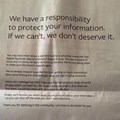The recent Facebook data breach has had serious ramifications globally.
About a week ago, The Guardian reported that Cambridge Analytica “worked with Donald Trump’s election team and the winning Brexit campaign [and] harvested millions of Facebook profiles of US voters, in one of the tech giant’s biggest ever data breaches, and used them to build a powerful software program to predict and influence choices at the ballot box.”
The New York Times reported that “the hashtag #DeleteFacebook appeared more than 10,000 times on Twitter within a two-hour period on Wednesday, 21 March according to the analytics service ExportTweet. On Tuesday, 20 March it was mentioned 40,398 times, according to the analytics service Digimind.”
Last month, Facebook CEO, Mark Zuckerberg, shared a timeline detailing exactly how the breach took place, and steps taken to date to remedy the situation. It has committed to a resolution and is working toward it under extremely heavy scrutiny. The long-term impact remains to be seen… as are the effects on organisations globally that rely heavily on the efficacy of Facebook advertising.
How will this impact your business?
In the first instance are businesses utilising Facebook for third-party log in access. The simple fact that registration has been made so easy for users has seen this feature well used. In the past, it is possible that abuse by organisations with access to user’s private data was ignored. Facebook is now conducting an audit of all third-party apps, and any data misuse will be reported to all users engaging with the app, and a ban imposed on those applications. Those businesses with ethical data use records have nothing to fear.
This data breach will not technically impact advertising in any way. The repercussions here are far subtler. One of the reasons why Facebook advertising, and especially calls to action and lead generation, is so successful is that advertisers have always been operating in an atmosphere of trust.
Users have been willing to share personal information when a brand appeals directly to them. Brands rely on the fact that users feel safe and are happy to pay for the high-quality interactions that the platform offers. Now, however, there are heightened levels of fear, and with that comes the risk of diminished trust. However, Facebook has weathered attacks before, and the likelihood of serious long-term damage is minimal.
Facebook will not change the way data is accessed and curated by those organisations directly advertising through Facebook. This is not where the problem lies, and here data is incredibly safe and secure. The businesses that will need to adapt most significantly to new measures will be Facebook marketing partners and developers.
Tighter restrictions
Restrictions to data will be increased, and developers will be even more tightly bound by contractual obligations before access to any private data is granted. Again, this is a very positive move, as it protects the ethical businesses and aims to shut down, very quickly, those practising on the fringes.
FMPs and digital agencies will most certainly need to adapt to tighter restrictions. However, as Facebook advertising comprises the company’s key source of revenue (topping USD39.9bn in the last year), it will not jeopardise its unmatched rate of return or cost per acquisition.
Changes are coming. I feel confident, however, that in the medium-term we will find ourselves in an environment that will be stronger, and far safer.



























































